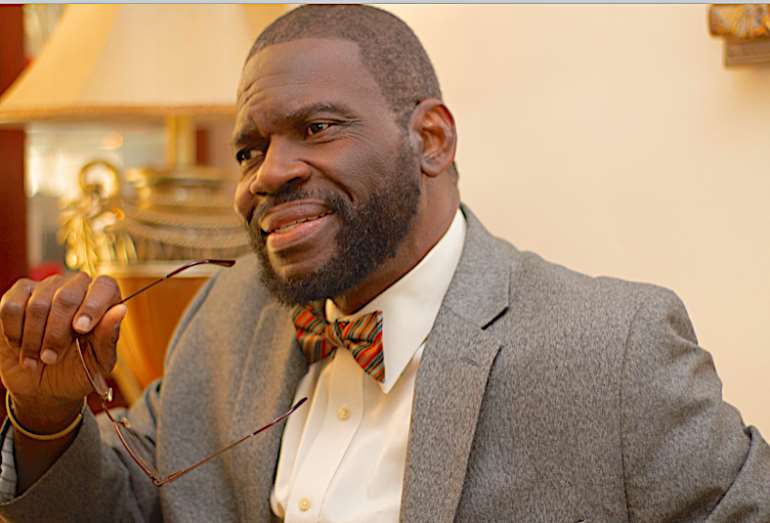The ruling came like a quiet earthquake—no noise, no drama, just a gavel falling where the powerful least expected it. On July 4, 2025, Justice Binta Nyako of the Federal High Court in Abuja ordered the Nigerian Senate to recall Senator Natasha Akpoti-Uduaghan, declaring her six-month suspension unconstitutional and excessive. The judgment stunned a system used to controlling outcomes. It rattled the high walls of Senate leadership. But most of all, it shocked the powerful architects behind Natasha’s punishment—because Binta Nyako was not supposed to do this.
They had trusted her to play along. To delay. To deflect. To use procedure as a shield. After all, she had been tested in controversial cases before—most notably in the matter involving Nnamdi Kanu—and many in power believed her judicial courage had long been tamed. But when it mattered most, she chose conscience over compromise. And that is why, behind closed doors, the whisper rose louder: “How dare she?”
The System Feels Betrayed—Because It Thought It Owned Her
When the case was rerouted to her after Justice Obiora Egwuatu recused himself under pressure, many assumed this would be the end of the line. Egwuatu had already ruled in Natasha’s favor by issuing a restraining order. His decision made the powerful uncomfortable. The backlash was immediate: an unverified petition, accusations of bias, and the kind of quiet intimidation that Nigeria’s judicial officers know too well. Egwuatu stepped aside. The case was moved.
To them, Nyako was a safer bet. She had once recused herself in the controversial Nnamdi Kanu trial and returned under pressure, only to be stripped of the case by the Chief Justice—a move that left her credibility punctured and her image scarred in the eyes of many. That earlier recusal-then-removal episode made her appear cautious, even uncertain—a judge too fragile for explosive matters. In this case, they expected the same version of her: one who would play safe, defer to power, and echo institutional sentiment. They believed she belonged to them. That she would not defy the Senate.
But they miscalculated. She ruled for Natasha. She ruled for the Constitution. She ruled for the people. And that ruling was not merely legal—it was emotional. It was a moral break from the choreography of obedience they expected her to follow. In their minds, her courtroom belonged to them. Her voice belonged to them. But she reminded them—quietly, forcefully—that justice, at its best, belongs to no one but the people.
This writer knows none of the parties involved, holds no alliances with any institution or political figure, and seeks no favor or recognition. The only allegiance here is to the idea of fairness, justice, and democracy. This pen is not guided by friendship or popularity—but by truth, and the cry of the unheard. Let that be clear.
But Even Courage Was Calibrated
And yet—even in her boldness, Justice Nyako was careful. She made sure to cool political temperatures. She did not sanction Senate President Godswill Akpabio, even though the Senate’s actions had clearly violated the court’s restraining order. The Senate had gone ahead with Natasha’s suspension despite that directive—an open act of defiance. But rather than escalate the crisis by punishing Akpabio directly, Nyako withheld formal sanctions.
That was no accident. That was judgment. She gave them a way to save face. Her message was layered: “You violated the law, but I will not escalate this breach into national paralysis. I will restore what you tried to destroy—but I will let you walk away without disgrace.” It was, in effect, an invitation to retreat without humiliation. And that, too, is a form of statesmanship—judicial restraint that prioritizes national stability while refusing to betray legal truth.
This was not weakness. It was calculated mercy. It was her way of navigating Nigeria’s volatile power dynamics while preserving the court’s dignity. She used the gavel not like a weapon, but like a scalpel—cutting where needed, but never tearing the nation’s fragile fabric.
This Is Why They’re Whispering “How Dare She?”
Because she played the game just long enough to flip the board. Because she reminded them that even a judge they counted as theirs might one day remember her oath. Because she ruled for Natasha without punishing Akpabio—and that balance makes her even more dangerous. She disarmed them without detonating the room. And in doing so, she has exposed what they feared most: the law still has unpredictable life. Not loyalty. Not control. Not guarantees. Life.
That unpredictability is terrifying to the powerful. It means the script no longer holds. It means a judge they thought was domesticated might still deliver wild justice. And in a country where power expects loyalty, not law, that is the ultimate betrayal. She reminded them of something they had long forgotten: a judge can still surprise you.
The Word Was ‘Recall’—But the Message Was ‘Return’
Many Nigerians are quietly observing that while Justice Binta Nyako’s ruling was undeniably courageous and constitutionally sound, it still carried a note of caution—perhaps to avoid directly offending the powerful. Her choice of the word “recall” rather than the stronger, more declarative term “return” is being seen by some as a subtle way of softening the blow to the political establishment, especially to those implicated in Senator Natasha Akpoti-Uduaghan’s accusations of sexual harassment.
As a woman judge navigating a male-dominated judiciary and confronting entrenched political power, Nyako’s word choice was likely deliberate. “Recall” is a legal term. It sounds procedural, not personal. It gives space for those in power to comply without appearing defeated. But everyone knows what she meant. The people themselves had longed to hear “return.” And in their hearts, that is what they heard.
The fear now is that this softer language gives room for the Senate—and particularly the man she accused—to delay or distort compliance, treating the ruling as optional rather than absolute. But no matter how they twist the wording or stall the process, one truth remains unchangeable: Justice Nyako did something. She stood when others stayed silent. And no power—not Akpabio, not the Senate, not the machinery of political retaliation—can erase the fact that her ruling restored both the Constitution and the woman it tried to bury. Her call for “recall” was, in its essence, a demand for return—and no force can silence that truth.
Now the Powerful Scramble—And the People Remember
Inside the Senate and certain branches of the executive, the ruling has triggered damage control: “Do we appeal?” “Do we delay compliance?” “Do we shift focus to her contempt fine?” They’re searching for ways to bury the ruling in technicalities. They whisper in marble hallways and leak narratives to friendly media outlets. But outside the gates of power, something is stirring. Something old, something long buried.
The people are remembering. Remembering that one ruling can still cause tremors. That even in a broken system, justice can momentarily speak. That one woman in a robe, despite her history, her proximity to power, and the political fog surrounding her, still chose to write her legacy in law—not fear.
Let them whisper. Let them grumble. But let history record: Justice Binta Nyako did not flinch. She ruled for the law. She offered the Senate mercy, but gave Natasha justice. She reminded a nation that the gavel is not just wood—it is memory. It is memory that will haunt the unjust and fortify the just.
Oh Now They Are Running Around: A Quiet Shift in the Halls of Power
Suddenly, the very men who orchestrated Natasha’s silencing are making frantic calls. Whispering in corridors. Plotting in hotel rooms. “How dare Binta,” they hiss. “How can we block this ruling?” Their minds race through the old playbook: We’ll say she has multiple other cases pending. We’ll argue that the judiciary has no power over Senate internal affairs. We’ll send emissaries to the CJN, the AGF—maybe even the President himself. Surely someone can contain this unexpected fire.
But here is what they now face: a growing national weariness. A psychological exhaustion with the rule of man. From the corridors of the Villa to the offices of the judiciary, even among the powerful themselves, a quiet truth is forming: we are tired. Tired of the manipulations. Tired of the silence. Tired of the mock trials. Tired of the fear.
The Quiet Confession of Power: “We Are Tired of the Rule of Man”
And so, even in hushed tones, they are beginning to admit it—President Bola Tinubu, Chief Justice Kudirat Kekere-Ekun, and Attorney General Lateef Fagbemi—not necessarily in public statements, but in private reflections, in weary silences, in unguarded moments behind closed doors: We are tired of the rule of man. Not because virtue suddenly found them, but because the burden of protecting power at the expense of justice is becoming too heavy—even for those who engineered the system. The weight of complicity, the erosion of public trust, the endless bending of institutions to shelter the powerful—it is catching up with them. Not as conscience, but as consequence. And now, even they know: continuing down this road may not just destroy others. It may eventually undo them too.
Justice Binta Nyako did not just issue a verdict. She issued a disruption. She broke the chain. And now, even those who fear what she has done are slowly realizing: there is no going back to how it was.
And Then—There Is Justice Binta Nyako
We thank her. She chose the truth. With decades of judicial service, wisdom written into her years, and the calm dignity of an elder, she stood where others faltered. Oh, they will likely try to get her. The forces of backlash are always looking for the brave ones. But what can they really do now? The judgment is public. The moment is documented. Her name, in this case, is written on the side of justice.

Let them try. Let them send emissaries. Let them draft anonymous petitions or resuscitate old rumors. But the truth has already gone out. Her ruling is a bell that cannot be unrung. In this moment, she reminded us not just of what a judge can do—but what a judge can mean. And that is why we thank her. Not just for the ruling. But for the memory she has left us with—the memory of a woman who, when the system expected her to kneel, quietly stood up.

Prof. John Egbeazien Oshodi
Professor John Egbeazien Oshodi is an American psychologist, educator, and author specializing in forensic, legal, and clinical psychology, cross-cultural psychology, police and prison sbintaciences, and community justice. Born in Uromi, Edo State, Nigeria, he is the son of a 37-year veteran of the Nigeria Police Force—an experience that shaped his enduring commitment to justice, security, and psychological reform.
A pioneer in the field, he introduced state-of-the-art forensic psychology to Nigeria in 2011 through the National Universities Commission and Nasarawa State University, where he served as Associate Professor in the Department of Psychology. His contributions extend beyond academia through the Oshodi Foundation and the Center for Psychological and Forensic Services, advancing mental health, behavioral reform, and institutional transformation.
Professor Oshodi has held faculty positions at Florida Memorial University, Florida International University, Broward College, where he also served as Assistant Professor and Interim Associate Dean, Nova Southeastern University, and Lynn University. He is currently a contributing faculty member at Walden University and a virtual professor with WeldiosUniversity and ISCOM University.
In the United States, he serves as a government consultant in forensic-clinical psychology, offering expertise in mental health, behavioral analysis, and institutional evaluation. He is also the founder of Psychoafricalysis, a theoretical framework that integrates African sociocultural dynamics into modern psychology.
A proud Black Republican, Professor Oshodi advocates for individual empowerment, ethical leadership, and institutional integrity. His work focuses on promoting functional governance and sustainable development across Africa.


